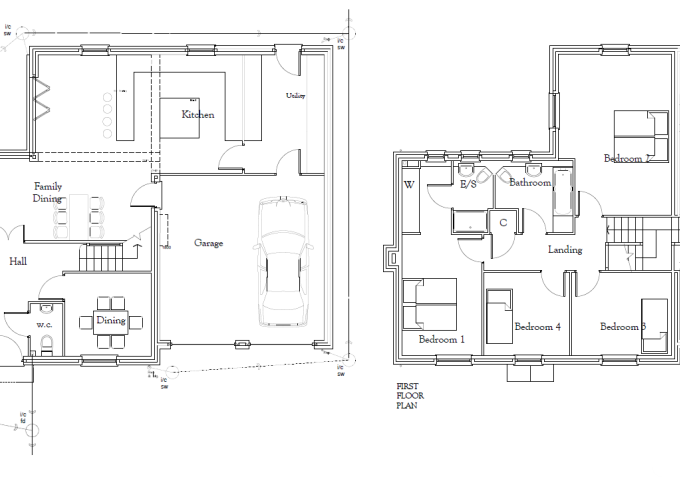James Mason’s tips for self-build success
If anyone knows all about the highs and lows of self-build, it’s James Mason, a self-builder from North Yorkshire who has completed two self-build projects since 2015. He currently resides in his second home, a timber frame construction self-build.
We caught up with him after his first self-build and followed him as he shouldered the project management of his second home. Navigating a global pandemic, surgery on his ankle, and flooding in Christmas 2015 while constructing his first self-build has certainly tested his resolve. Saying he has learnt his fair share of lessons is an understatement. From self-build design through to project management – James could write a book but here he shares his insider top tips on what to consider before you embark on your own project.
1/ Be prepared to fail at times…but rise to the challenges
One thing I have learned (and continue to) is that a self-build is never short of challenges and blockers. Everything can be going to plan, and on budget, and suddenly you find yourself navigating through delays that you hadn’t anticipated. Our plumber was ‘hit and miss’, he was called out to other jobs and abandoning work on our self-build. It was driving me mad! I had to be firm with him and luckily, I am not shy in coming forward but it’s one thing to bear in mind as a self-builder…you have to be firm. I needed the job done and he was letting me down.
Navigating our way through a global pandemic was our biggest challenge to date. Three lockdowns in and we found ourselves living in a rental home which was setting us back almost £800 a month – costs we hadn’t planned for.
2/ Get to grips with planning permission
It’s important that self-builders are aware of their responsibilities when it comes to preparing the site to ‘discharge the conditions’. This means that when you apply for planning permission it is granted with conditions attached. If you don’t ‘discharge’ these conditions with your local planning department, you could be subject to planning enforcement action in the form of a Temporary Stop Notice which will prevent you from working on site.
3/ Don’t settle, shop around
When I was on the lookout for tradespeople it wasn’t easy. I’ve discovered that day rates wildly fluctuate, and I’ve received some silly quotes for joiners ranging from £160 up to £280 per day. Experience has taught me that negotiation is crucial, and it’s never been more key during these uncertain times. I really must say that researching trades is one of the most important parts of the project. Getting recommended people removes the worry. Get quotes for the job, not price per hour. They main thing that sticks with me is the planning process – be in control, know what you want and hold contractors to task.
4/ Keep a beady eye on your costs
Throughout my projects I always kept an eye on escalating costs. My spreadsheet was sectioned into mortgage, credit cards, VAT reclaim and my long (and ever-growing) to-do list. I received quotes like £3,600 for some of our windows but with a bit of negotiation I managed to beat the quote and get it down to £2,900. Elsewhere, I managed to haggle again when it came to scaffolding. I was originally given a quote of £6,000 and I managed to knock £2,000 off the original quote! As a self-builder, you need to question the cost of everything and be persistent. If you can manage your self-build this can truly lower your costs.
5/ Don’t forget to secure insurance
It’s easy to get carried away with the never-ending to-do list but put this high on your list – insurance. It’s so important to get cover in case anything goes wrong, and often structural warranty is a requirement for a self-build mortgage. It simply covers any major faults in the workmanship, design, and materials in the construction of a self-build. We arranged our 10-year structural warranty cover and site insurance with Build Zone for our second self-build, a structural warranty provider, and this cost us £2,400. I used Build Zone on my last project, and it seemed a hassle-free option. I looked at other quotes, but they were pretty much the same.
